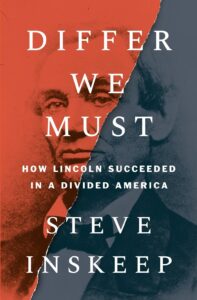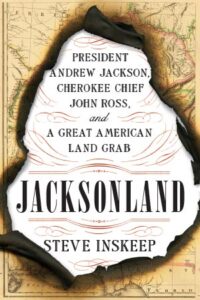The Record of Opposition
This is a petition by Cherokees to be allowed to keep their land in the 1830’s. It is preserved among many other petitions in a metal box at the National Archives in Washington; and this amazing document helps to decode much of the battle over Indian land in the Southeast.
The first clue is in the language, or rather languages. It is written in both English and Cherokee. By the early 19th century Cherokees had embraced education along with other aspects of what was seen as white civilization, and were rapidly adopting their own writing system as developed by Sequoyah. The existence of a written Cherokee language bolstered their argument that they were not barbarians; the parallel writing in English delivered their message to white lawmakers, and white voters, on whom the Cherokees’ fate depended.
The second clue is the sheer number of signatures on the petition. All available evidence suggests that the vast majority of Cherokees supported their leader, John Ross, in his bid to preserve historic Cherokee land in north Georgia and surrounding states. White leaders nevertheless suggested that Ross, a man of mixed race, was not an authentic Indian and did not truly represent his people; they called into question the validity of signatures on petitions like this one, but when elections were held in the Cherokee Nation, Ross’s side won.
The third clue is that there was a petition at all. Cherokees were fighting for a place within America’s rapidly emerging democracy, and they fought using democratic means- appealing to Congress, the public at large, and the courts. The Supreme Court actually ruled in their favor in 1832, stating that they had never given up the right to rule their own land; but President Andrew Jackson’s administration and its allies found a way to have the case quietly withdrawn, and Cherokees never enjoyed the benefit.
An unauthorized minority faction of Cherokees finally did sign a treaty agreeing to sell Cherokee land and move west of the Mississippi; this 1835 treaty became the legal basis for the Trail of Tears in 1838. Andrew Jackson, the great American proponent of majority rule, was the prime mover in defeating the will of an apparent vast majority of Cherokees.



